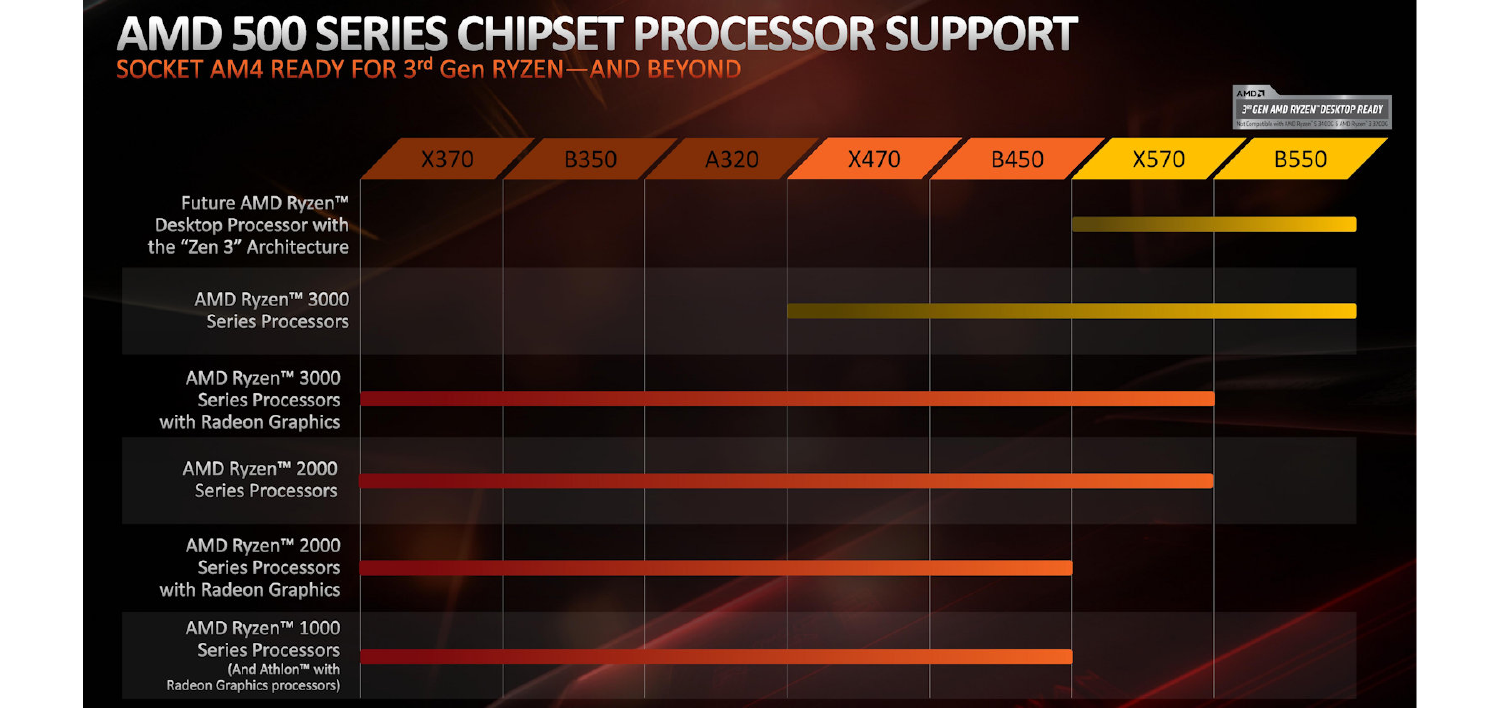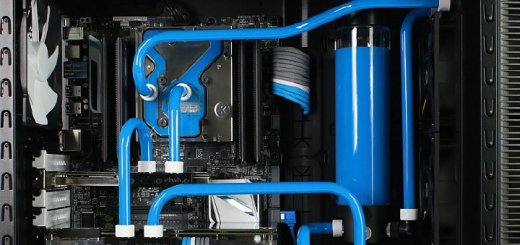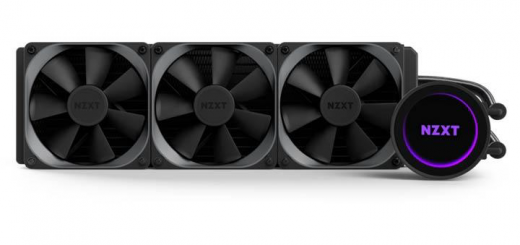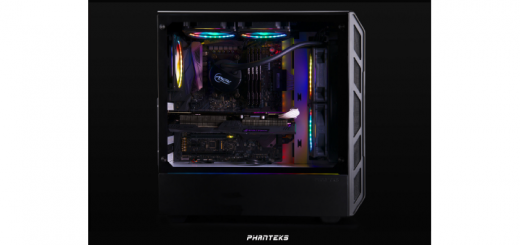After facing backlash over its announcement to not support upcoming Zen 3 based Ryzen Series of processors on X470, B450, and older motherboards, AMD backtracked its decision. In a press release, AMD announced that it would enable support for Zen 3 Ryzen Series of CPUs on X470 and B450 motherboards. However, X370 and B350 motherboards will still not support Zen 3 CPUs.
Why Did AMD Backtrack on Its Decision?
AMD had earlier stated that Future AMD Ryzen Desktop Processors with the Zen 3 architecture wouldn’t be supported on 400 and 300 Series motherboards. The announcement was received negatively by the tech community. It was because AMD had been emphasizing time and again that its AM4 socket will live through 2020. Buyers who had purchased an X470 or B450 motherboard with an eye on upgrading to Zen 3 desktop processors were disappointed. Quite a few of them were planning to upgrade to the next generation of Ryzen processors in the future.
Also, the mainstream audience who purchased Ryzen 3000 Series processors paired it with a B450 motherboard as the B550 motherboards had been delayed significantly. The B550 motherboards are going to launch almost one year in June of 2020 after the release of Ryzen 3000 Series of desktop processors in July of 2019. The dissent among the consumers and the community might have been far less if AMD had launched B550 motherboards along with its Ryzen 3000 Series of processors. They would have bought a B550 motherboard with support for Ryzen Zen 3 CPUs.
A few manufacturers had already claimed that their 400 Series AMD motherboards would support future AM4 CPUs. Customers took these companies on their words and bought a 400 Series chipset. It may have also pushed AMD to backtrack on their decision to avoid legal concerns.
AMD’s Official Press Release
As we head into our upcoming “Zen 3” architecture, there are considerable technical challenges that face a CPU socket as long-lived as AMD Socket AM4. For example, we recently announced that we would not support “Zen 3” on AMD 400 Series motherboards due to serious constraints in SPI ROM capacities in most of the AMD 400 Series motherboards. This is not the first time a technical hurdle has come up with Socket AM4 given the longevity of this socket, but it is the first time our enthusiasts have faced such a hurdle.
Over the past week, we closely reviewed your feedback on that news: we watched every video, read every comment and saw every Tweet. We hear that many of you hoped a longer upgrade path. We hear your hope that AMD B450 and X470 chipsets would carry you into the “Zen 3” era.
Our experience has been that large-scale BIOS upgrades can be difficult and confusing especially as processors come on and off the support lists. As the community of Socket AM4 customers has grown over the past three years, our intention was to take a path forward that provides the safest upgrade experience for the largest number of users. However, we hear you loud and clear when you tell us you would like to see B450 or X470 boards extended to the next generation “Zen 3” products.
As the team weighed your feedback against the technical challenges we face, we decided to change course. As a result, we will enable an upgrade path for B450 and X470 customers that adds support for next-gen AMD Ryzen™ Processors with the “Zen 3” architecture. This decision is very fresh, but here is a first look at how the upgrade path is expected to work for customers of these motherboards.
We will develop and enable our motherboard partners with the code to support “Zen 3”-based processors in select beta BIOSes for AMD B450 and X470 motherboards.
These optional BIOS updates will disable support for many existing AMD Ryzen™ Desktop Processor models to make the necessary ROM space available.
The select beta BIOSes will enable a one-way upgrade path for AMD Ryzen Processors with “Zen 3,” coming later this year. Flashing back to an older BIOS version will not be supported.
To reduce the potential for confusion, our intent is to offer BIOS download only to verified customers of 400 Series motherboards who have purchased a new desktop processor with “Zen 3” inside. This will help us ensure that customers have a bootable processor on-hand after the BIOS flash, minimizing the risk a user could get caught in a no-boot situation.
Timing and availability of the BIOS updates will vary and may not immediately coincide with the availability of the first “Zen 3”-based processors.
This is the final pathway AMD can enable for 400 Series motherboards to add new CPU support. CPU releases beyond “Zen 3” will require a newer motherboard.
AMD continues to recommend that customers choose an AMD 500 Series motherboard for the best performance and features with our new CPUs.
There are still many details to iron out, but we’ve already started the necessary planning. As we get closer to the launch of this upgrade path, you should expect another blog just like this to provide the remaining details and a walkthrough of the specific process.
At CES 2017, AMD made a commitment: we would support AMD Socket AM4 until 2020. We’ve spent the next three years working very hard to fulfill that promise across four architectures, plus pioneering use of new technologies like chiplets and PCIe® Gen 4. Thanks to your feedback, we are now set to bring “Zen 3” to the AMD 400 Series chipsets. We’re grateful for your passion and support of AMD’s products and technologies.
Why AMD was hesitant to support Zen 3 CPUs on 400 Series motherboards?
The primary reason that AMD gave for not supporting newer processors was the limited ROM on the older motherboards. Most of them have 16MB BIOS chips. Their limited capacity would not allow them to support older and newer CPUs. A few motherboards, such as MSI’s, had 32MB BIOS chips, but they have to be partitioned into two 16MB chips, which complicates the process. It will behave as if it has two separate BIOS. The partitioning is required because some AMD CPUs are not compatible with BIOS chips larger than 16MB. AMD will have to remove support for older CPUs to add new ones, which it is going to do for supporting Zen 3 desktop CPUs on 400 Series motherboards.
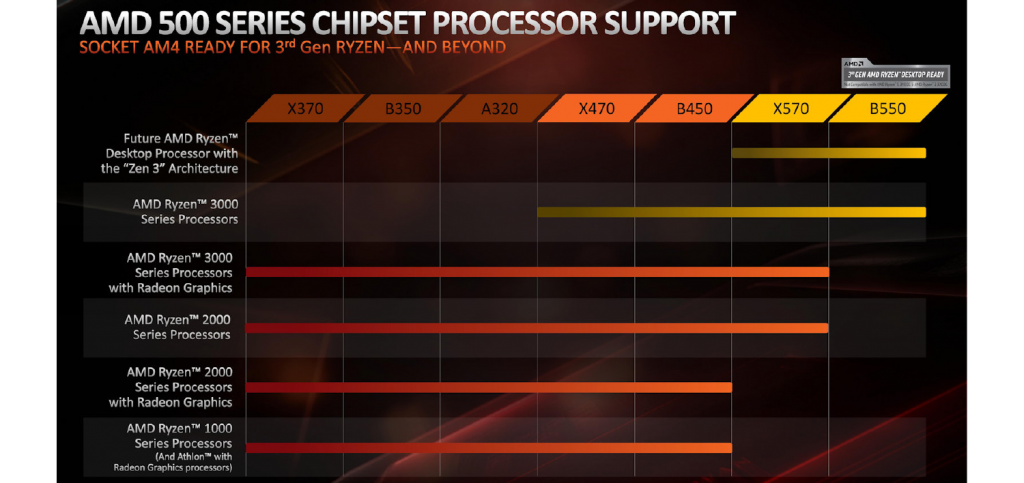
These motherboards may require a Beta BIOS to support Zen 3 based CPUs. The new BIOS will enable support for Zen 3 processors. It may result in the motherboards having two different forked BIOS systems. One of them may support Ryzen 3000 and older processors, while the newer one may be for Zen 3 based CPUs. It may be the same as the upcoming B550 motherboards that will support 3000 and Zen 3 based CPUs but not 2000 or 1000 Series. The Beta BIOS will have to be installed by the users manually.
Will all X470, B450 motherboards support Zen 3 Ryzen processors?
While AMD is enabling support for Zen 3 based CPUs on X470 and B450 motherboards, it will be up to the manufacturers to implement it in their motherboards. They may choose to forgo support on models due to technical or other limitations. Although, we do expect that most popular models of B450 and X470 motherboards will get BIOS updates for supporting Zen 3 based Ryzen CPUs.
Will users be able to downgrade from the newer BIOS for X470 and B450 motherboards?
AMD has stated that once a user installs a Beta BIOS on their X470 or B450 motherboard, they won’t be able to downgrade to the default BIOS. Users must be sure that they want to update their BIOS to the Beta version before they commit to it. They won’t be able to use an older CPU after moving to a newer BIOS for Zen 3 processors.
Will the new BIOS for the X470 and B450 motherboards be available at the launch of Zen 3 processors?
AMD has informed that the new BIOS versions for the X470 and B450 motherboards may not be available at the launch of Zen 3 CPUs, and the owners may have to wait for some time. It is understandable as there may be many technical challenges involved in running Zen 3 CPUs on older motherboards. Also, as AMD had no plans beforehand for supporting Zen 3 processors on 400 series motherboards, there won’t be any groundwork done on the same. AMD’s first priority will be the upcoming B550 motherboards.
Should I buy a B450 or B550 motherboard?
AMD is recommending its 500 Series motherboards over the existing ones. All of these motherboards will receive support for Zen 3 processors. Also, B450 and X470 motherboards do not support PCIe 4.0, but the 500 Series motherboards do. It may be beneficial for NVMe storage and future graphics cards.
Therefore, if you are going to buy a Ryzen processor, then either buy an X570 motherboard or wait for the soon to release (probably June 2020) B550 motherboards. It will allow you to upgrade your system in the future without significant hassles while providing a few extra features.
However, if you are on a tight budget and don’t plan to upgrade your CPU for a few years, then a B450 motherboard might suit your requirements. B550 motherboards will be more expensive at launch as compared to B450 motherboards. The price of the latter may fall even further with the launch of B550 motherboards. Buyers may be able to grab a good deal.
